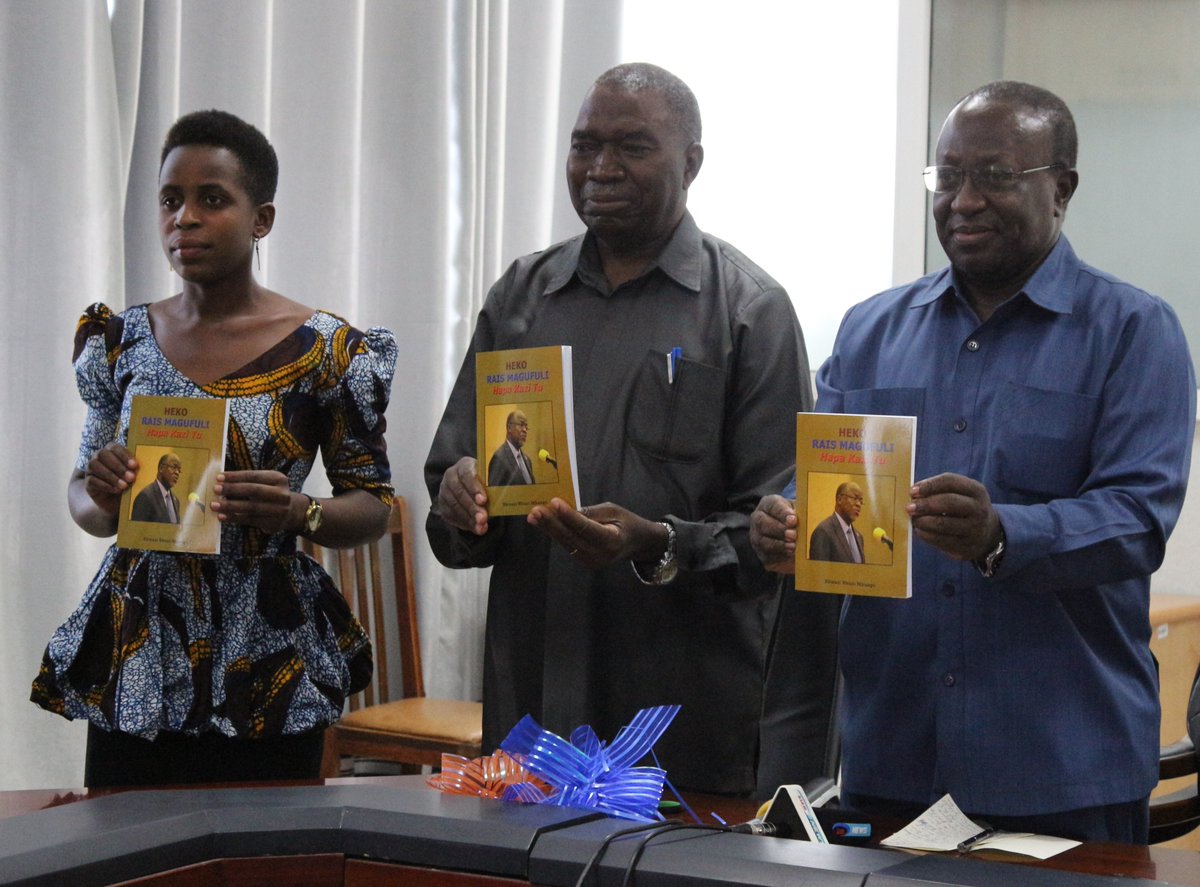
When one of my friends saw the list of my books, he wrote me “congrats my brother on writing such many books. For many have lived and died without even lettering a single article in the newspaper.” In responding, I told this friend that not all can write though it’s important to. Reading the books or views by the retired speaker, Mzee Pius C. Msekwa in weekly column in the Daily News has enriched me, and possibly many from far and wide countrywide as well. I must declare my interest to avoid the conflict of interests. Mzee Msekwa is one of my mentors and role model so to speak. This aside, I must admit that his contribution to the running of our country is superb. At his age, he’d have decided to retire and enjoy his emoluments in his cozy home in Ukerewe or elsewhere. But to the contrary, being selfless, Mzee Msekwa has unconditionally decided to offer his expertise on governance as his contribution to his country and the current regime under president Dr John Pombe Magufuli. I am sure the role he’s playing through his column is helpful to the current regime. Looking at the issues Mzee Msekwa explores and tackles, if you like, I get many answers to the questions nobody could answer, especially retired leaders due to the fact that it is not easy to get them.
I understand that president Magufuli has unconditionally offered his precious time to meet with retired leaders to gain their expertise and wisdom. I try to imagine how will we be enriched if the retired stalwarts like Hon. Benjamin Mkapa, Jakaya Kikwete and others would contribute weekly or as they deem fit as their time allows. When I consider Mzee Mkapa as an intellectual, orator and retired leader, his contribution will be constructively healthy.
When retired leaders write, they incredibly help the new generation to scoop from their rich experience and intellect in resolving the problems their countries face. The first and former Nigeria’s president Nnamdi Azikiwe used to write before and after becoming the head of state. In the home stretch, the late father of the nation, Julius Nyerere wrote extensively before and after his presidency. Mzee Nelson Mandela, the first South African indigene wrote a book before becoming president. Kwame Nkrumah (Ghana) Amilcar Cabral (Cape Verde) Leopold Sedar Senghor (Senegal) Jomo Kenyatta, (Kenya), all first presidents too did whereas the Gambia’s first president, Sir Dawda Jawara wrote a 500-page tome in 2010 . Apart from this crop of the first leaders and now Mzee Msekwa who is now writing a book or a column? Another leader that writes, though sporadically, is Uganda’s Yoweri Museveni. Whenever anything itchy happens as it involves him, he’ll pen something to air his views. What went wrong?
Former US President Barack Obama became the first sitting President to write a scholarly article. Due to the centrality of writing, the Independent(July 15, 2016) wrote that Obama wrote an article titled “United States Health Care Reform: Progress to Date and Next Steps” that’s published by theAmerican Medical Association (known as JAMA) on July 11. As a sitting president, Obama had paid spin-doctors and public relations officers who popularised his policies and views. Yet, he wanted his views to go beyond politics and cover academia with the aim of helping future presidents on the matter. By setting this precedent, Obama didn’t only inspire other presidents but also politicians to write regardless they’re in power or not. If this article were written by a professor in a field or just any academic, it’d not have become a big deal for a famous newspaper like the Independent. But when the sitting president wrote, the paper found it to be an important issue to report due to the impacts it might have on the general public and academia. Another sitting president who’s recently started writing a weekly column is Zimbabwean Emerson Mnangagwa who writes in the Daily Mail.
I recently got it from Mzee Msekwa himself that he is in the course of publishing two books on the history of Tanzania. I am sure; he’ll forgive me for divulging such personal information. Msekwa’s contribution is constructively huge and desirable. Drawing from his selfless and wisdom, I must note here. When I approached him asking him to write a foreword for my book Kudos to President Magufuli that was recently launched by the Minister for Information, Culture, Arts and Sports, Dr Harrison Mwakyembe whom I hugely thank, he selfless and unconditionally offered to do it within a single day. Why are the contributions of our retired leaders effectively key to the wellbeing of our country? Firstly, it is an opportunity for them to show us what they see after retiring. Secondly, it is the opportunity that will help them to rectify all things they did or took wrongly, thus, the time for them to put records straight. Thirdly, by writing, apart from inspiring others to write and express their views on how things should be, they will be able to participate in running the country intellectually. Mzee Msekwa has done this competently and hugely. For example, Mzee Msekwa has written extensively on how to run the parliament as a retired speaker not to mention on the union of Tanganyika and Zanzibar which has always put the two cohorts at loggerheads to need some expertise from those who know it firsthand.
In a nutshell, we need our retired leaders to share their experiences and views with our people through either writing articles or books. This way, it is hugely important for our retired leaders to emulate my friend Mzee Pius C. Msekwa who has never lied down and rolled over when it comes to writing.
Source: Citizen, today.



